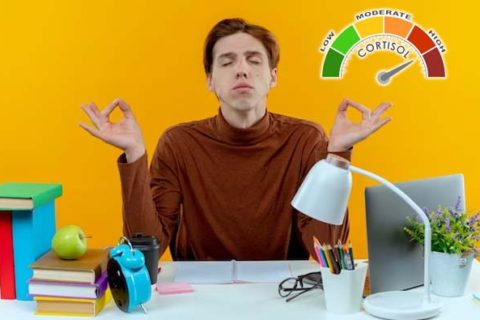Recently, mental disorders become people’s concern since there are a number of mental disorders issues which lead to suicide as experienced by some public figures. According to the Medline Plus site, mental disorders can be defined as conditions which affect your thinking, mood, feeling, and behaviour.
7 Common Types of Mental Disorders
According to the eMedicineHealth site, here are seven common types of mental disorders.
-
- Depression
- Anxiety disorders like generalized anxiety disorders, social anxiety disorders, panic disorders, and phobias.
- Obsessive-compulsive disorder (OCD)
- Bipolar disorder
- Post-traumatic stress disorder (PTSD)
- Schizophrenia
- Personality disorders like narcissistic personality disorder, borderline personality disorder, and antisocial personality disorder.
The Symptoms of Those 7 Mental Disorders
Each of those 7 mental disorders has symptoms and here is the explanation about it according to the eMedicineHealth site.
1. The Symptoms of Depression
The symptoms of depression are listed below.
-
- They do not care about things that they used to.
- They feel down, sad, or hopeless most of the day and even almost every day.
- They gain or lose weight.
- They will sleep too much or they will sleep too little.
- They feel exhausted or lack energy.
- They feel guilty or worthless.
- They are forgetful.
- They are confused.
- They move and speak more slowly than usual.
- They are restless or have trouble staying still.
- They think of death or suicide.
Are you or your family member or friend or others that you know in crisis? If so, the toll-free National Suicide Prevention Lifeline can be called at 1-800-273-TALK (8255). This number is available 24 hours a day, 7 days a week.
2. The Symptoms of Anxiety Disorder
Here are the symptoms of anxiety disorder.
-
- They feel worried.
- They feel fearful.
- They feel ‘on edge’.
- They feel tired.
- They have muscle tension.
- They get stomach aches.
- They feel that their chest is tight or painful.
- They fear of embarrassment.
- They are blushing.
- They are sweating.
- They are trembling.
- Their heart beats rapidly.
- They get headaches.
- They are dizzy.
3. The Symptoms of Obsessive-Compulsive Disorder
Here are the symptoms of obsessive-compulsive disorder.
- Obsessions
They have repetitive and persistent thoughts such as contamination, images such as of violent or horrific scenes, or urges such as to stab someone. These are not pleasurable or voluntary. They try to avoid, ignore, or suppress obsessions or to neutralize them with another thought or action such as performing a compulsion.
- Compulsions
They do repetitive behaviours such as washing, checking or mental acts such as counting, praying, repeating words silently that they feel compelled to do in relation to an obsession or according to rules that need to be implemented rigidly or to get a sense of ‘completeness’. Compulsions are not linked realistically to the feared event or are clearly excessive.
4. The Symptoms of Bipolar Disorder
Here are the symptoms of bipolar disorder.
- Depression
- Mania
– They feel abnormally and persistently angry, happy, hyperactive, impulsive, and irrational at different times.
– They have feelings of special powers and superiority.
– Their need for sleep is decreased.
– They are restless.
– They talk excessively.
– Their activity is increased.
– They have racing thoughts.
– They have a short attention span.
– They laugh or joke something which is inappropriate.
– They get into arguments.
– They spend sprees or do sexual activity inappropriately.
5. The Symptoms of Post-Traumatic Stress Disorder
Here is the list of the symptoms of post-traumatic stress disorder.
-
- They relive the trauma: nightmares, memories, or flashbacks.
- They feel numb.
- They avoid certain people or places.
- They have intense feelings such as fear, anger, or worry.
- They have sleeping trouble or insomnia.
6. The Symptoms of Schizophrenia
Here are the symptoms of schizophrenia.
-
- They go through hallucinations.
- They go through delusions.
- They think or speak in a disorganized way.
- They lack of emotion and or changes in facial expression.
- They move or talk minimally.
- Their hygiene is poor.
- They lack of interest in spending time with people or having fun.
- They have problems in learning and remembering.
- It is difficult for them to understand speech or other forms of communication.
- It is difficult for them to make sense of new information.
- Solving problems is hard to do.
- They are anxious.
- They are depressed.
7. The Symptoms of Personality Disorder
Here are the symptoms of personality disorder.
-
- Their mood swings.
- They have angry outbursts.
- They have social anxiety which causes difficulty in making friends.
- They feel that they need to be the center of attention.
- They feel cheated or taken advantage of.
- They lack of impulse control or difficulty delaying gratification.
- They do not feel that there is anything wrong with someone’s behaviour (ego-syntonic symptoms)
- They externalize and blame the world for someone’s behaviours and feelings.
The Causes of Mental Disorders
After you know 7 common types of mental disorders, now you may wonder about the causes of mental disorders. According to the eMedicineHealth site, here are some causes of mental disorders.
-
- It is genetics or there is a family history of the disorder.
- Environment can be a cause of mental disorder.
- There is a chemical imbalance in the brain.
- They do substance abuse.
- They have trauma during childhood.
- They were stressful or in stressful circumstances during childhood.
- They live in poverty or get low levels of social support.
How to Diagnose Mental Disorders
As explained on the eMedicineHealth site, mental disorders are generally diagnosed by a mental health professional such as a psychiatrist or psychologist. Certain criteria must be met if someone has mental disorders as outlined in the Diagnostic and Statistical Manual of Mental Disorders (DSM-5).
To get rid of other underlying medical causes for the thoughts and behaviours, exams and tests may be used which include imaging tests: magnetic resonance imaging (MRI) of the brain, positron emission tomography (PET) scan of the brain; electroencephalogram (EEG), and lab tests such as urine and blood tests to detect substance use, infections, or other underlying medical conditions.
Treatment for Mental Disorders
On eMedicineHealth site, it is explained that treatment for mental disorders generally involves medications, therapy, or a combination of the two. Medications which are given to the patients with mental disorders include antidepressants, anti-anxiety medicines, antipsychotic medications, and lithium.
How about therapy? The types of therapy which are used to treat mental disorders are psychotherapy, cognitive behavioural therapy (CBT), and marital and family therapy.
There are also other treatments which are used to treat mental disorders such as transcranial magnetic stimulation (TMS) for depression, electroconvulsive therapy (ECT) for depression, and alcohol and/or drug abuse treatment.
Well, that’s the information that I got from eMedicineHealth site about 7 types of mental disorders, symptoms, causes, how to diagnose and also treatment and thank you for reading this.

A bookworm and researcher especially related to law and citizenship education. I spend time every day in front of the internet and the campus library.





